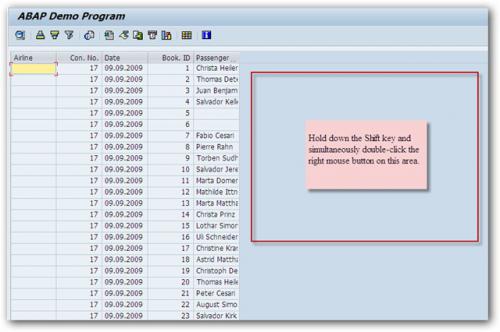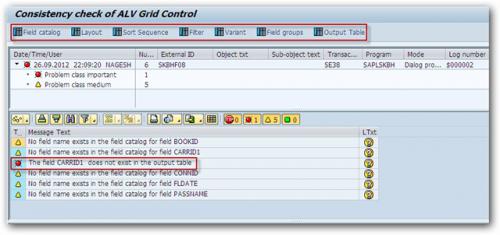What is SAP ABAP on HANA?
by Ragavendiran Kulothungan Shakila
 Ever heard the term ABAP but not sure what it refers to or what it really is? In short, ABAP is the programming language that the SAP system was written in, and this article explains how ABAP on HANA has developed over the recent past.
Ever heard the term ABAP but not sure what it refers to or what it really is? In short, ABAP is the programming language that the SAP system was written in, and this article explains how ABAP on HANA has developed over the recent past.
SAP ABAP Introduction
ABAP is a high-level programming language created by ERP giant SAP, and it runs in the so-called SAP ABAP runtime environment. ABAP stands for Advanced Business Application Programming. It is based on computing languages such as C, C++, Java, and Python. Most SAP applications that end-users use have been developed using ABAP programming language.
The evolution of ABAP from R/3 to the latest ABAP as a platform is highly commendable. The language has revolutionized the way developers develop applications, create custom reports, interfaces, workflow, and much more in SAP NetWeaver ABAP systems. The ABAP programs can be stored in any database on which SAP NetWeaver runs.
As technology continues to improve, the evolution of the ABAP programming language has become impeccable. From running ABAP programs in any database to SAP ABAP on HANA databases in specific, the change is remarkable. This improved efficiency leverages the high performance, multi-core architecture of the SAP HANA database. With the evolution of SAP ABAP on HANA, developers can write optimized programs on the go and avoid many lines of code, as HANA has the efficiency to create sums, indexes, or aggregates on the fly.
Are you new to ABAP? Do you have the desire to learn the ABAP programming language? Then this course SAP ABAP Intro to Editing & Operators is a good starting point for you.
SAP ABAP on HANA – Evolution
Initially, ABAP can access SAP HANA as a side-by-side scenario. In this approach, both ABAP and the SAP HANA database are considered as two different entities. With the introduction of SAP NetWeaver 7.31, SAP ABAP can run on the HANA database as a secondary database. In SAP NetWeaver 7.40, SAP has optimized ABAP for SAP HANA as the primary database.

Fig. 1: SAP ABAP on HANA Evolution
Watch this intro lesson for ABAP 7.4 for S/4HANA:
Things To Know About SAP HANA
Here are a few facts about the SAP HANA database:
- In-memory database
- Supports row storage but is really optimized for column storage of data
- Multi-processing
- Insert only on data
- High compression
- Multi-core architecture
- No aggregate tables
SAP ABAP on HANA
SAP ABAP developments leverage the efficiency of SAP HANA. The ABAP applications using SAP HANA as the primary database have many development guidelines. With SAP ABAP on HANA, there is a radical paradigm change that uses a code-to-data model instead of the traditional data-to-code standard. SAP HANA offers both column and row storage, and it is up to the developers to decide how data is to be organized in the database.
The column storage is suitable for tables with intensive search operations and aggregations, a large number of columns, and more columnar operations on a large number of rows. The row storage is the best option for tables that have a small number of data entries, no intensive search operations, low compression, no aggregation, and are buffered.
Are you looking for SAP ABAP hands-on experience? Check out our training course SAP ABAP Working with Data Basics.
Code-to-Data Standard
The traditional application programming standard is the data-to-code approach, where data is fetched from a database and stored in tables and then processed on the application server. The classical model has changed to code-to-data with an in-memory database like HANA, where computations happen within the database, and results are sent to the application server.
This reduces the server load in the application server and eliminates the resource bottleneck. Further, this reduces the delay caused due to latency resulting in high performance with a large volume of data.
Wish to know about SAP ABAP 7.4 syntax and HANA advancements? Check our Introduction to ABAP 7.4 in S/4HANA course for more information.

Fig. 2: Latest SAP ABAP Platform (75E) in SAP S/4HANA 1909
Guidelines for SAP ABAP on HANA
SAP has improved ABAP from NetWeaver 7.4 towards the HANA database. Now, developers can decide how to code efficient applications while leveraging the efficiency of the SAP HANA database. In the past, developers have worked using the traditional standard data-to-code, now it is time to reconsider the guidelines while writing ABAP code for HANA.
Below are few guidelines to be considered,
- Minimize the amount of data transferred – Use aggregated functions (MIN, MAX, COUNT, SUM)
- Maintain result sets small – use WHERE clause as much as possible
- Minimize the data transfers – Use JOINS, SELECT, INSERT, UPDATE, MODIFY and DELETE
- Minimize the search overhead – Use secondary indexes
- Reduce load in the database – don’t read data redundantly, sort data and use table buffering
SAP ABAP – A futuristic platform
SAP ABAP on HANA = Efficient! One word to describe the main benefit of the SAP ABAP for HANA programming language. With the efficiency of the high-performance database SAP HANA, developers create applications in ABAP with fewer coding lines, which take the performance of an application to the next level.
The Code-to-Data model reduces the load within the application layer by performing computations in the in-memory database. SAP ABAP on HANA laid the foundation for ABAP as a platform offering complete application development and runtime platform.
The ABAP platform is designed for the entire business process lifecycle and makes it simple to use SAP HANA to create business apps based on SAP Fiori. ABAP on HANA took a giant leap in today’s technology, as the platform allows developers to build applications in the SAP Business Suite, SAP S/4HANA (either on-premise or cloud) and custom applications. With the advancement in technology, it offers modern ABAP programming, extensibility, user-centricity, security, event-driven programming, and a common data model.
Looking for SAP ABAP Courses?
Are you thinking to jump-start your career in ABAP? Start your SAP ABAP on HANA journey with our hands-on SAP ABAP simulation courses.
by Ragavendiran Kulothungan Shakila
More Blogs by Ragavendiran Kulothungan Shakila

5 SAP Applications That Use Machine Learning...
Machine Learning (ML) is a technology-focused on Artificial Intelligen...

What is the SAP Cloud Platform?
The SAP Cloud Platform (SCP) is the next-generation platform to create...

What is SAP Financial Accounting (SAP FI)?
SAP Financial Accounting (SAP FI) - An Overview SAP FI (SAP Financi...
Related Blogs

3 Tips for a SAP SuccessFactors HR Transformation
As a veteran participant in many successful client implementations of ...

Asset Accounting in S/4HANA: What's Improved?
There’s been a lot of talk about the new architecture in S/4HANA...

What is SAP Controlling (SAP CO)?
SAP Controlling (SAP CO) - An Overview The SAP Controlling module is part of...
.png)

